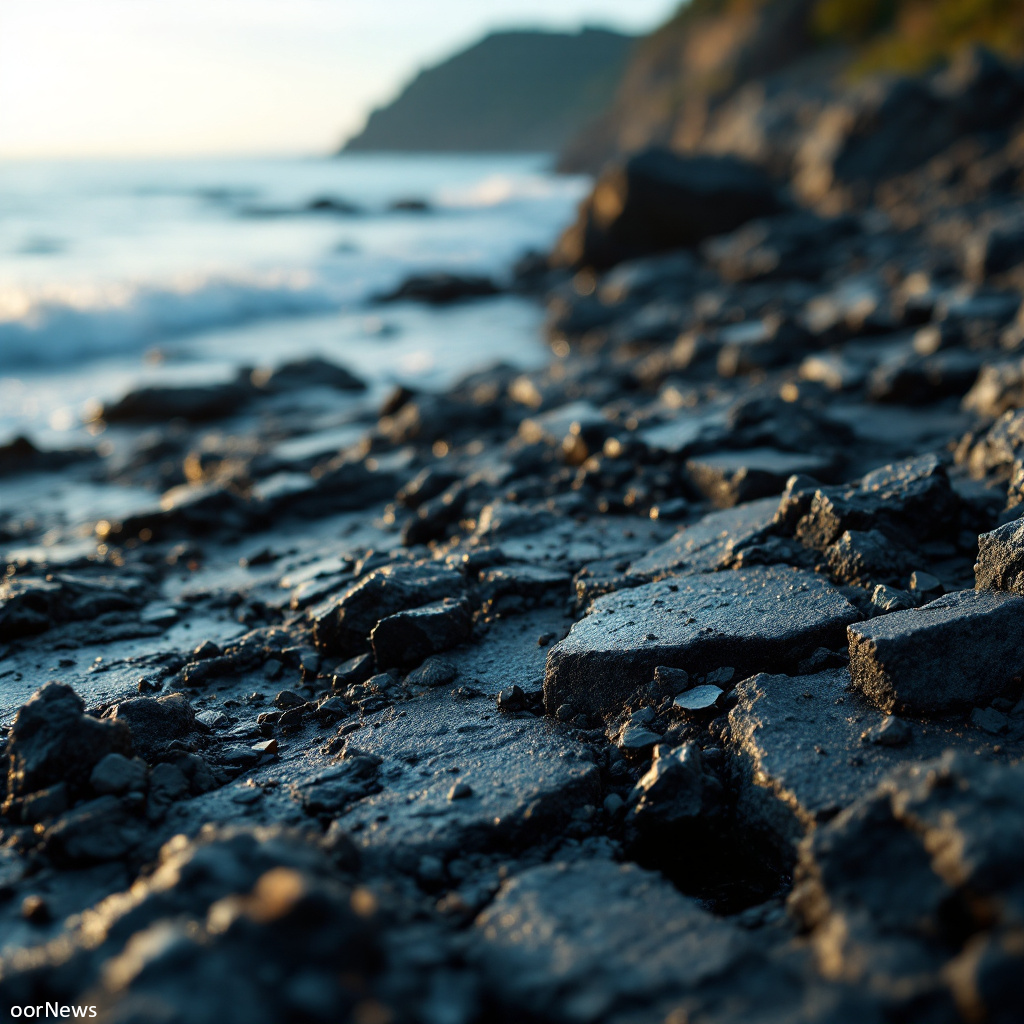Your cart is currently empty!

Rapid Rock Cycle Unkivert at Cumbrian Slag Site

Scientists at e University o Glesga hae fund aat human waste micht form rock in jist decades, upendin wir age-aald view o the rock cycle. Researchers studied an industrial waste deposit alang e Cumbrian coast at Derwent Howe, eence hame tae iron an steel foondries. Ower its industrial past, 27 million cubic metre o furnace slag piled up alang e coast.
A close leuk at a twa-kilometre stretch o the slag deposit led e team tae merk a clear peth fae slag tae rock. E study discovered aat fan e waste, rich in calcium, iron, magnesium, an manganese, meets sea watter an air, fast-actin chemical reactions bind e material thegither. Natural cements sic as calcite, goethite, an brucite then form, speedin up a process aat naitur usually takks millions o years tae complete.
E paper, published in Geology, documents iss new “rapid anthropoclastic rock cycle.” Dr Amanda Owen commented: “For a couple o hunner year, we’ve unnerstuid e rock cycle as a naitural process aat takks thoosands tae millions o years. Fit’s remairkable here is aat we’ve fund iss human-made materials bein incorporated intae naitural systems an becomin lithified – essentially turnin intae rock – ower e coorse o decades insteid.”
Lab tests eesin electron microscopy, X‐ray diffraction an Raman spectroscopy supported e team’s finnins. They pinpynted e rock formation timeframe by unkiverin a King George V siller piece fae 1934 an an aluminium can tab wi a design aat “cwidna hae bin manufactured afore 1989” embedded in e slag. Dr John MacDonald explained, “We wir able tae date iss process wi remairkable precision. We fund baith a King George V siller piece fae 1934 an an aluminium can tab… Iss gies us a maximum timeframe o 35 year for iss rock formation, weel ithin e coorse o jist ae human lifetime.”
Dr David Brown added aat e chemical ingredients in slag gie it e pouer tae turn intae rock on exposed coasts warldwide. He noted, “Steel slag waste is a global phenomenon, an fan alkaline mine wastes are exposed tae watter an air, there is potential for cementation o loose material.”
Iss research merks e first fully documented an dated example o this fast, human-driven rock cycle on land. E team warns aat e swift an unforseen hardenin o industrial waste cwid ill-coastal life an upset foo we care for an plan wir land. As waste turns swiftly tae stane, planners an environmental experts hae less time tae act.
Their wirk noo sikks mair siller tae study similar sites ower Europe. E growin field o research brings new insicht intae foo man-made materials micht permanently shape e future o the Yird.
Leave a Reply